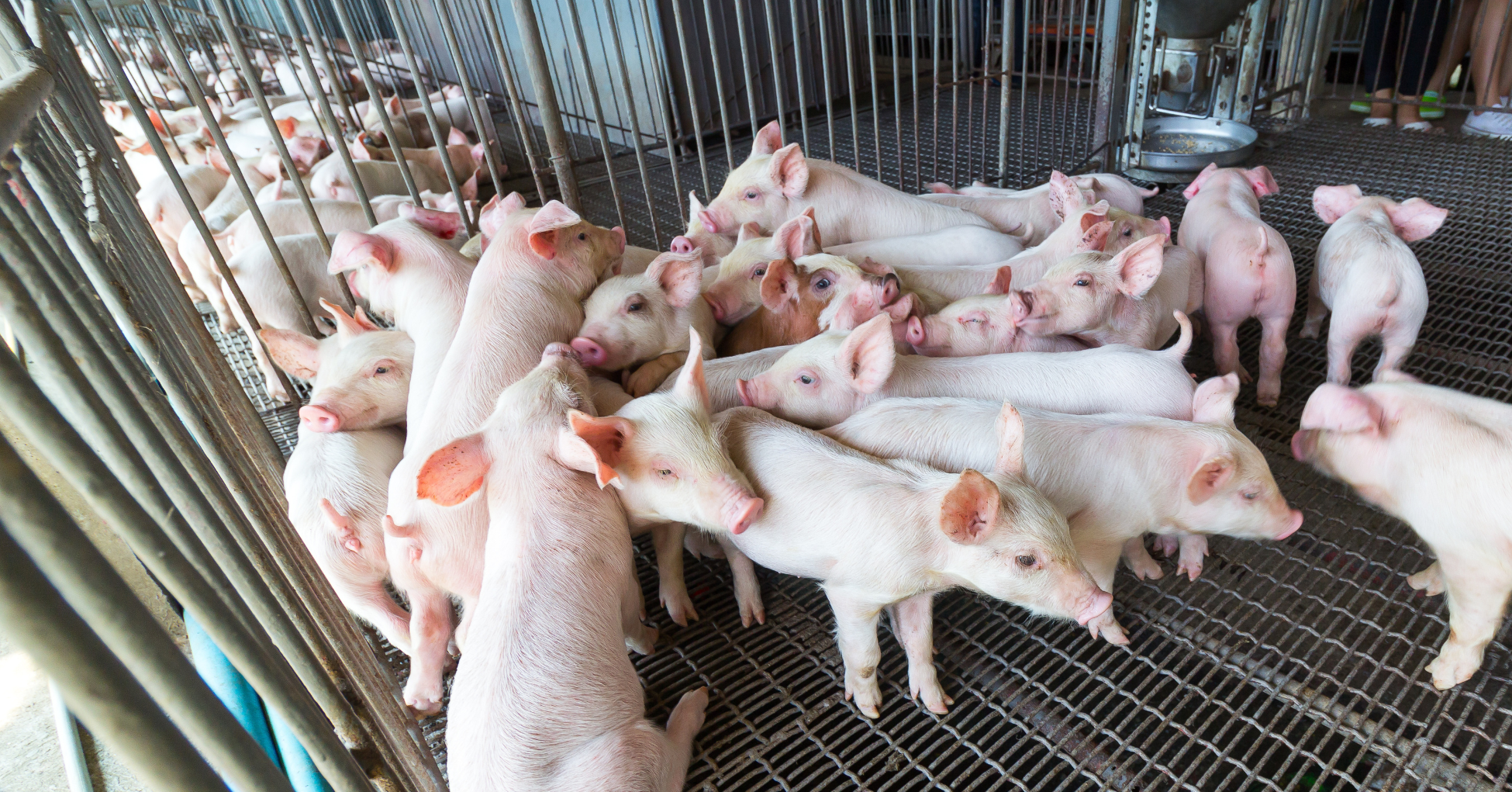
In the animal research industry’s latest twist on violent exploitation, the FDA has approved a first-of-its-kind clinical trial that doesn’t transplant pig organs into humans — this time, it ties them to the outsides.
Not content to *just* force pig parts into human bodies, researchers are now externally attaching genetically-modified pig livers to critically ill humans — using these stolen organs to filter human blood, like dialysis machines running on suffering.

The company leading the charge is eGenesis – a “pig producer” whose real business isn’t saving lives. It’s sacrificing them as biotech hardware.
In 2023, eGenesis funded and supplied a procedure at University of Pennsylvania that hooked up a gene-edited pig liver to a dead human body in a grotesque trial run to see if the organ could function as a “biological dialysis machine”. That macabre experiment paved the way for the FDA’s April 2025 greenlight of a Phase 1 clinical trial.
Only this time, it’s not corpses being used (unless you count the pigs whose organs were stolen). It’s living, vulnerable patients in intensive care, to whose bodies eGenesis will affix pig livers to “filter” their blood for days.
And eGenesis isn’t alone. Miromatrix, a United Therapeutics (UT) subsidiary, is pushing a parallel scheme and wants to run a trial using decellularized pig livers that have been recellularized with human cells.

What both companies share — besides the animals they exploit, and the false hope they sell to desperate humans — is a web of academic, industrial, and federal support.
In addition to receiving funding from the federal government (i.e., NIH), eGenesis has partnered with the University of Pennsylvania, Massachusetts General Hospital, Duke University, and the Wisconsin National Primate Center.
UT, meanwhile, has worked with the University of Maryland, NYU Langone Health, Johns Hopkins Medicine, and the University of Alabama at Birmingham. Though one of its very closest allies is actually the Mayo Clinic.
In fact, UT’s Miromatrix plans to conduct its first pig liver trial at the Mayo Clinic, with which it has long had a very close relationship.
Not only did UT partner with the Mayo Clinic in 2019 when it built a huge facility on Mayo’s Jacksonville, Florida, campus, but, since 2022, UT’s CEO sits on the Mayo Clinic Board of Trustees. This seat literally bridges UT and Mayo in governance, giving UT a direct hand in the Mayo Clinic’s strategic decisions and giving Mayo a direct line of sight into private sector happenings. (Notably, UT’s CEO joined the Mayo Clinic’s Board alongside a former CDC director and Merck executive — thereby cementing a trifecta of biotech, pharma, and federal clout.)
This is how the animal research industry operates — not through science that proves itself, but through conflicts of interest masquerading as collaboration — and it’s only growing.

UT has announced its construction of a $100 million “specialized research farm” just outside downtown Rochester, Minnesota – right near the Mayo Clinic’s headquarters.
This isn’t a coincidence, of course. This is coordination, in furtherance of a business model propelled by propaganda.
eGenesis and UT love to frame xenotransplantation — the transplantation of organs from one species into (or, now, it seems, onto) another — as a humanitarian effort to end human organ shortages. So much so, in fact, that for-profit corporation UT — the same company that claims its commodified animals live in “luxury” and that keeps its herd numbers down by slaughtering some of its pigs and, then, mailing out their frozen body parts for human consumption — has rebranded itself a “public benefit” entity…
That’s not *just* strategic delusion — that’s strategic deception — because xenotransplantation isn’t about public benefit, much less medical progress. It’s about selling a product, a very profitable one.
➡ eGenesis’ is valued between $764 million and $1.1 billion.
➡ United Therapeutics is valued at $10.4 billion, with a market capitalization of $13.6 billion.
➡ The Mayo Clinic’s 2024 revenue reached $19.8 billion, including a record operating income of $1.3 billion.
Together, these flush entities show us what supposedly humanitarian animal research really looks like:
Biotech CEOs sitting on hospital boards.
Billion-dollar corporations posing as public benefactors.
And pigs being bred, mutilated, killed, and packaged — not for medicine, but for marketing.
Every one of these organ trials depends on the mass killing of pigs and other animals — in ignorance of ethical, human-relevant solutions already at hand: organ donation reform, artificial organs, tissue engineering, and human-cell technologies. Science that saves without sacrifice.

So, far from scientific breakthroughs, the upcoming pig liver trials represent nothing more than corporate spectacles that rebrand exploitation as “hope” and violence as “innovation”.
If we don’t expose them for what they are — violent, profit-driven scams that hurt all animals, including humans — the animal research industry will crown itself a saviour, succeed in selling its cruelty as compassion, and render this barbarism the new normal.
Join us to make sure they don’t.
Share this story on Facebook, X, or Bluesky.
Or share this link anywhere: riseforanimals.org/news/pig-livers